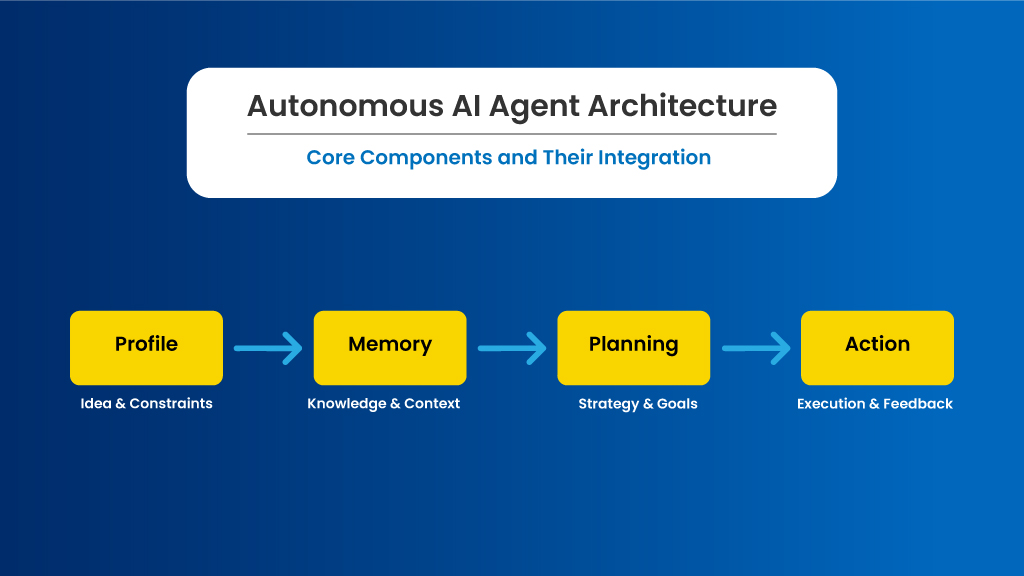What truly defines great customer service today?
If you think it’s just about delivering products or services as promised, think again. That’s the bare minimum. The game-changer? Meeting customer needs before they even express them.
Shoppers now expect more than just answers—they crave experiences. They want fast, efficient service with a personal touch. They expect brands to engage them the moment they reach out, without making them wait.
According to Salesforce’s State of the Connected Customer report, 72% of consumers say they remain loyal to companies that provide faster service. Yet, 69% of service agents struggle to balance speed with quality. With shifting budgets and rising customer expectations, service teams face a critical question: How do you deliver more with less?
The answer? AI Agents.
Welcome to the future of customer service, where AI agents aren’t just tools; they’re strategic assets transforming the retail industry. For C-suite decision-makers, understanding this shift isn’t optional—it’s essential for staying competitive.
Role Of Retail Agents in Customer Service
Retail AI agents are intelligent systems that are adaptable and capable of understanding and responding to customer inquiries. Powered by advanced machine learning algorithms, natural language processing (NLP), and data analytics, these agents can understand and respond to customer inquiries in real time without human intervention. They don’t just automate tasks—they deliver personalized, efficient support across multiple touchpoints.
AI-powered customer service constantly evolves, learning from every interaction to become smarter and more efficient, giving it a distinct advantage over traditional, static automated systems. Powered by a robust architecture that includes profiling, memory, planning, and action modules, these agents can understand customer needs, recall past interactions, make informed decisions, and execute tasks seamlessly.

Key Challenges Of Customer Services in Retail & How AI Can Help:
For customers, good service is one of the most critical criteria while deciding whether to make a purchase. Shoppers now demand seamless, tailored interactions both online and in-store, pushing retailers to adapt quickly. But most of the time companies struggle to deliver a seamless customer experience due to complex channels, siloed data, and poor cross-department communication. Additionally, traditional retailers face mounting pressure to innovate and strengthen their digital presence to compete with online giants. AI agents offer transformative solutions to these issues.
AI in the Retail industry revolutionizes how businesses analyze data, generate insights, and make decisions. By harnessing the power of large language models (LLMs) and integrating them with a retailer’s unique data ecosystem, AI goes beyond traditional management processes. This advanced approach enables real-time insight generation, helping retailers make smarter, data-driven decisions, optimize operations, and deliver personalized customer experiences like never before.
Redefining Customer Engagement at Scale: Key Use Cases
In retail, customer experience is the battleground where brands win or lose. Traditional support models struggle to keep up with the surge in queries during peak seasons. Recently, Salesforce launched Agentforce for Retail with modern POS that comes with a new library of pre-built agent skills, empowering retailers to create agents that automate time-consuming tasks like order management, scheduling appointments etc. These trusted, autonomous AI Agents can be integrated with CRM & ecommerce platforms and are capable of enhancing productivity across marketing, commerce, merchandising, and store operations.
Key Use Cases of AI Agents For Retail Industry:
1. Personalized Product Recommendations:
AI agents analyze customer data, including purchase history, browsing behavior, and preferences, to suggest products tailored to individual needs. For example, if a customer frequently shops for fitness gear, the AI can recommend the latest running shoes or workout apparel, even highlighting items on sale. In fashion retail, an AI agent might suggest matching accessories based on a dress the customer added to their cart, enhancing upselling opportunities and creating a curated shopping experience.
2. Improved Customer Support:
AI-powered chatbots and virtual assistants offer 24/7 customer support, handling real-time queries efficiently. Imagine a customer wanting to track an online order late at night—an AI agent can instantly provide tracking updates, estimated delivery times, or help reschedule the delivery.
3. Efficient Inventory & Supply Chain Management:
AI Agents can monitor stock levels, predict demand, and optimize supply chains. Like automatically restocking popular items before they run out or rerouting shipments to avoid delays. The agent can also proactively inform the customer on the waitlist if a popular item is out of stock and when it will be back, providing pre-order options, keeping the customer informed and engaged. For instance, if a popular gadget is selling faster than anticipated, the AI can trigger automatic restocking before shelves run empty. In supply chain logistics, AI agents can reroute shipments in real time to avoid delays caused by weather disruptions or traffic issues.
4. Proactive Cart Recovery:
Abandoned carts are a common challenge in e-commerce, but AI agents tackle this proactively. If a customer leaves items in their cart without completing the purchase, the AI can send a personalized reminder via email or SMS, perhaps with a limited-time discount or free shipping offer to encourage conversion. For example, a customer who abandoned a pair of sneakers might receive a message like, “Still thinking about these? Grab them now with 10% off—just one click away!” This strategy not only reduces cart abandonment rates but also boosts overall sales.
Final Thoughts:
The future of AI agents in retail is all about smarter, more personalized customer interactions—both for businesses and consumers. For C-suite leaders, the question isn’t whether to adopt AI agents but how quickly you can integrate them into your customer service strategy.
As AI agents grow more sophisticated, they’ll move beyond task execution to become strategic partners, enhancing decision-making and delivering hyper-personalized customer experiences.
The real game-changer will be the seamless synergy between retail AI agents and personal AI assistants, creating frictionless, engaging interactions that boost customer loyalty and sales. The path forward for retailers isn’t just adopting AI—it’s embedding it into the very core of their business strategy.
Ready to revolutionize your retail business with AI Agents?
Embrace the revolution, and watch your business not just survive—but thrive. Let’s connect and explore how we can help you stay ahead in the AI-driven future.
FAQ:
1. What is the primary advantage of using Salesforce Marketing Cloud?
2. When should I use Lists instead of Data Extensions?
3. How does automation in Marketing Cloud improve efficiency?
4. What role do Data Cloud, Data Studio, and DMP play in Marketing Cloud?
5. Why are Exclusion and Suppression Lists important?

Nilamani Das
Nilamani is a thought leader who champions the integration of AI, Data, CRM and Trust to craft impactful marketing strategies. He carries 25+ years of expertise in the technology industry with expertise in Go-to-Market Strategy, Marketing, Digital Transformation, Vision Development and Business Innovation.


















